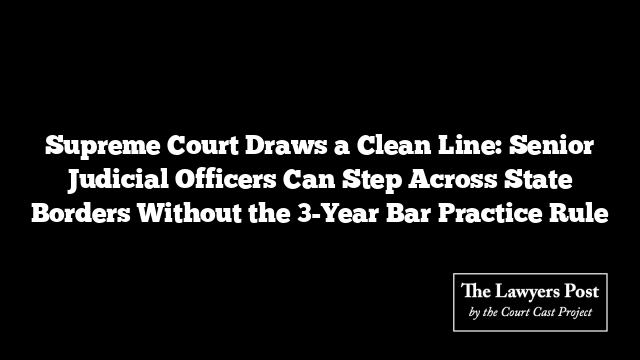The country’s highest court has sketched a sharp boundary in the ongoing debate over eligibility norms for judicial appointments. Those who entered the judicial ranks before the major ruling of May 20, 2025—when the three-year bar practice requirement was resurrected—are not trapped by that rule if they wish to shift to another State’s judicial service.
There is, however, one non-negotiable: they must have already spent three full years serving in their present State.
This clarification came from a bench led by the Chief Justice of India BR Gavai, with Justice K Vinod Chandran alongside, while examining the plea of a judicial officer who has been serving in Madhya Pradesh since 2019. She entered the system barely a year after enrolling with the Bar Council of Delhi—an era when no mandatory practice requirement existed—yet now seeks to compete in judicial selections elsewhere.
Her lack of three years’ bar practice raised a question that the Court resolved with crisp simplicity: what matters is the years in service, not the years at the bar, for those who joined before the 2025 judgment.
The Court noted that she has already completed six years on the bench, easily satisfying the service requirement, and then expanded its reasoning to all similarly placed officers. The bench declared:
Judicial officers appointed before May 20, 2025 need not satisfy the three-year bar-practice condition when applying to other States—provided they have completed at least three years in their existing service.
A long-standing puzzle in judicial mobility now has a clear, no-nonsense answer.





